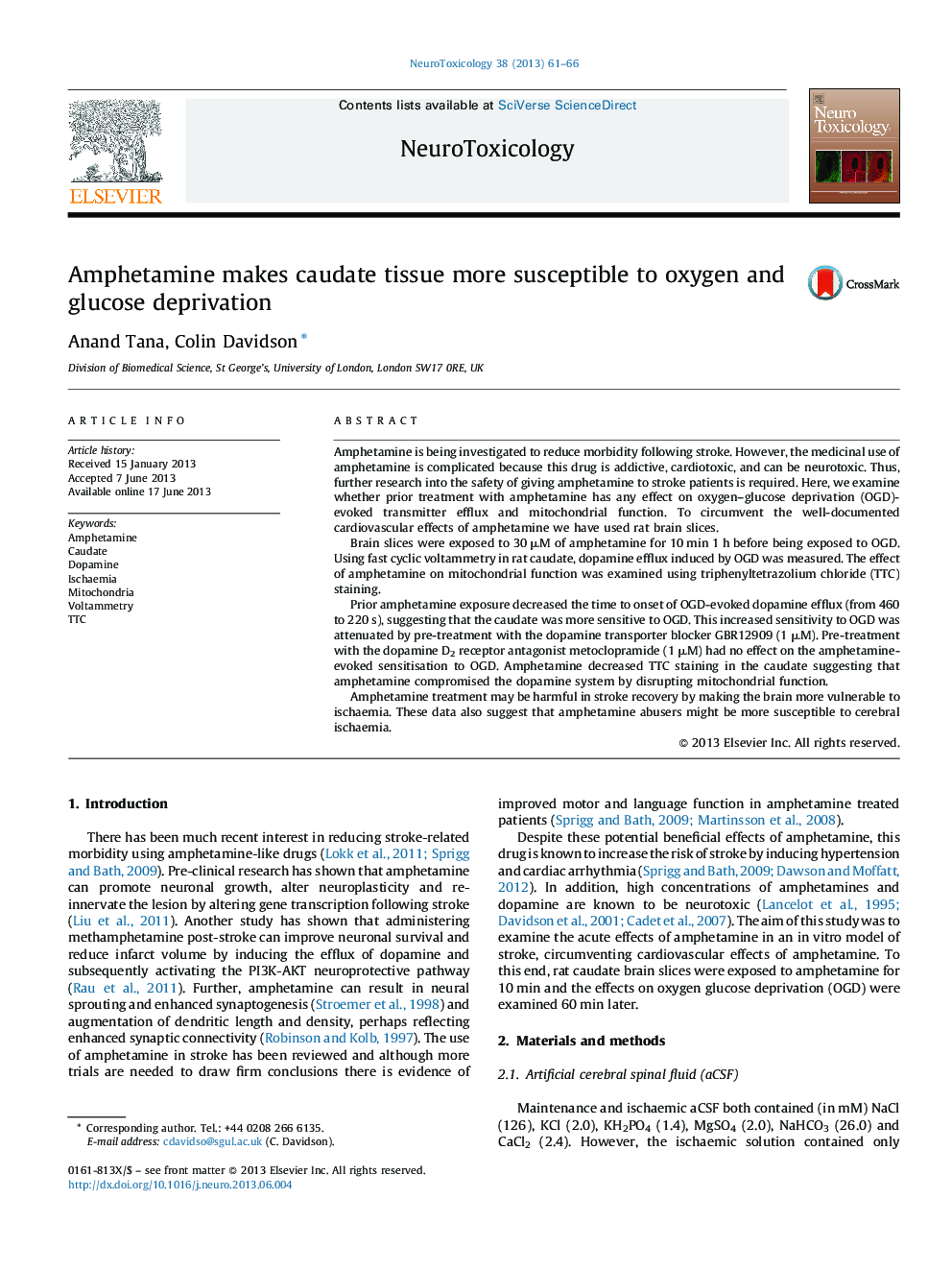| کد مقاله | کد نشریه | سال انتشار | مقاله انگلیسی | نسخه تمام متن |
|---|---|---|---|---|
| 5855012 | 1562056 | 2013 | 6 صفحه PDF | دانلود رایگان |
- Oxygen and glucose (OGD) deprivation caused dopamine efflux in a caudate brain slice.
- Amphetamine decreased the time to onset of OGD-evoked dopamine efflux.
- Amphetamine reduced TTC staining in the caudate.
- Amphetamine-evoked mitochondrial dysfunction renders the caudate more sensitive to OGD.
- These data have implications for the use of amphetamine in treating recovery from stroke.
Amphetamine is being investigated to reduce morbidity following stroke. However, the medicinal use of amphetamine is complicated because this drug is addictive, cardiotoxic, and can be neurotoxic. Thus, further research into the safety of giving amphetamine to stroke patients is required. Here, we examine whether prior treatment with amphetamine has any effect on oxygen-glucose deprivation (OGD)-evoked transmitter efflux and mitochondrial function. To circumvent the well-documented cardiovascular effects of amphetamine we have used rat brain slices.Brain slices were exposed to 30 μM of amphetamine for 10 min 1 h before being exposed to OGD. Using fast cyclic voltammetry in rat caudate, dopamine efflux induced by OGD was measured. The effect of amphetamine on mitochondrial function was examined using triphenyltetrazolium chloride (TTC) staining.Prior amphetamine exposure decreased the time to onset of OGD-evoked dopamine efflux (from 460 to 220 s), suggesting that the caudate was more sensitive to OGD. This increased sensitivity to OGD was attenuated by pre-treatment with the dopamine transporter blocker GBR12909 (1 μM). Pre-treatment with the dopamine D2 receptor antagonist metoclopramide (1 μM) had no effect on the amphetamine-evoked sensitisation to OGD. Amphetamine decreased TTC staining in the caudate suggesting that amphetamine compromised the dopamine system by disrupting mitochondrial function.Amphetamine treatment may be harmful in stroke recovery by making the brain more vulnerable to ischaemia. These data also suggest that amphetamine abusers might be more susceptible to cerebral ischaemia.
Journal: NeuroToxicology - Volume 38, September 2013, Pages 61-66
